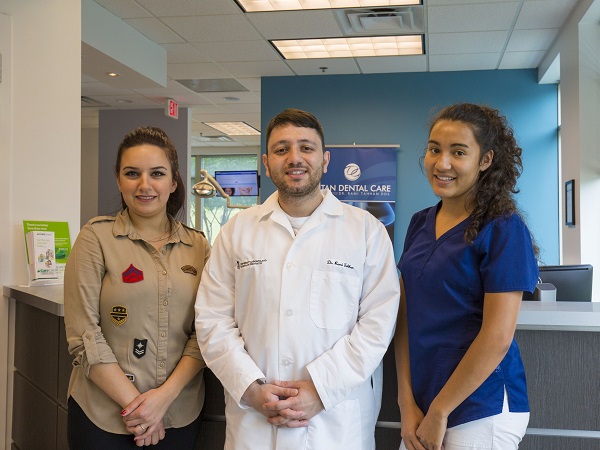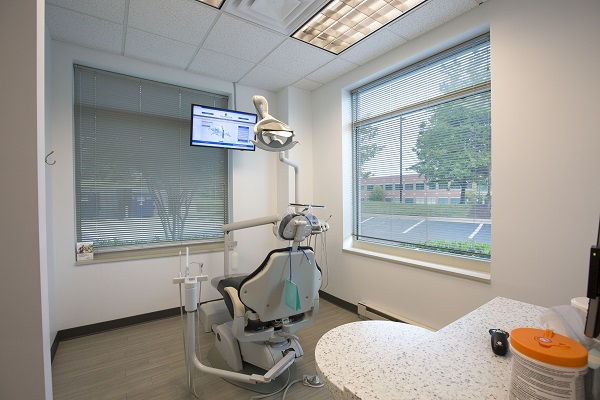How Flossing Is Important for Preventive Dentistry

Flossing is an important component of preventive dentistry. Flossing must always accompany daily brushing. This may seem insignificant. After all, it involves running a line of floss through the thin gaps of your teeth. Even so, flossing benefits your teeth. If you want to know how valuable flossing is for preventive dentistry, here are the details.
Keeps plaque and tartar from building up
Plaque is a sticky biofilm on the outer surface of teeth. It houses good and bad bacteria. Excessive plaque damages teeth. The calcium deposits in plaque harden it over time. This transforms plaque into tartar. This hardened plaque decays teeth, especially when it settles along the gumline.
Flossing is an additional task before or after brushing. Running a thin dental floss to get in between teeth is a good way to ensure the removal of plaque. This delays the formation of tartar. Flossing is vital in preventive dentistry.
Fights periodontitis
Using dental floss allows an individual to remove bacteria from the thin gaps between teeth. These areas are unreachable to a manual toothbrush. Bacteria multiply in these areas while sleeping through the night. Some of them may even enter the gum tissue. These harmful bacteria can cause periodontitis. Flossing every day helps prevent the onset of gingivitis and periodontal disease.
Removes food particles
Feeling pieces of food in between teeth is irritating. The first thing many people do is find a toothpick and try to dislodge the piece of food. Doing this may cause bleeding at times. This becomes a good opening for bacteria. Wooden toothpicks may also break off and leave a splinter in the gums. Dental floss is a better tool for removing the pieces of food in between teeth.
Flossing after every meal or snack should be a habit. It should be an automatic thing. Individuals must still floss even if the dish feels as if it did not leave any particles of food. This is an effective way to care for teeth and elevate general health.
Protects dental work
Flossing is a good tool in preventive dentistry when it comes to caring for any dental restorations. It is a good way of protecting such an investment. Bacteria can hide in between teeth with restorations. Brushing is good, but flossing can remove bacteria and food particles better. It prevents bacterial damage around the dental restoration.
Helps in preventing cavities
Preventive dentistry uses flossing as an instrument against decay as well. Flossing prevents tooth decay from starting on the side of a tooth. An infection at the side of a tooth can spread to the neighboring tooth. This can be frustrating. That is why preventive dentistry dentists encourage flossing every day.
Flossing is one of the valuable tools in preventive dentistry
Brushing and flossing always go together. Flossing makes your oral hygiene routine longer. Even so, the rewards from it spread into your general health. An appointment with your dentist can teach you the proper way to floss. This is a potent way to practice preventive dentistry.
Are you considering having a preventive dentistry procedure in the Sterling area? Get more information at https://www.titandentalcare.com.
Check out what others are saying about our dental services on Yelp: Preventative Dental Care in Sterling, VA.
Related Posts
Make sure the weekends remain great by preventing dental infection with the proper care.Preventative dental care occurs in our office and at home with proper dental hygiene. We can perform professional cleanings and examinations, while you keep your teeth healthy by brushing at home.Preventative Dental CareAt Titan Dental Care in Sterling, we work to customize…
For anyone who grinds his or her teeth at night, there are possible options for at-home treatment. Grinding teeth can wear down the tooth enamel and cause jaw pain. Since the teeth grinding occurs at night, it can be difficult for the individual to prevent it without extra assistance. We can determine your specific needs…
Our Sterling dental office provides preventative dental care to help keep our patients in excellent oral health and reduce the likelihood they will develop cavities or infections.Preventative dental care can be proactive, rather than reactive, by cleaning teeth on a regular basis. We can help prevent cavities from forming by strengthening teeth through the use…
A major component of routine dental care is a professional cleaning. Because this is typically done by a dental hygienist, someone in this profession typically knows more about the patients' teeth than the dentist or even the patient themselves. This makes a dental hygienist a tremendous source of information about oral health. Take advantage of…


